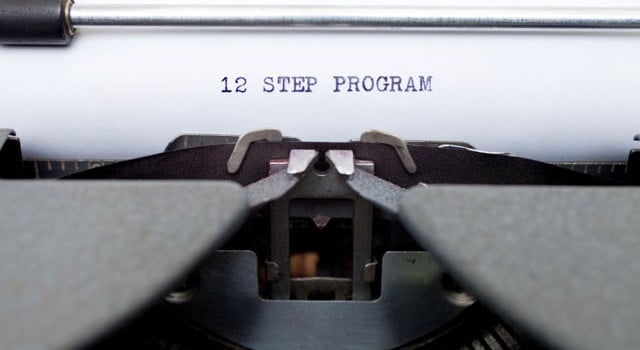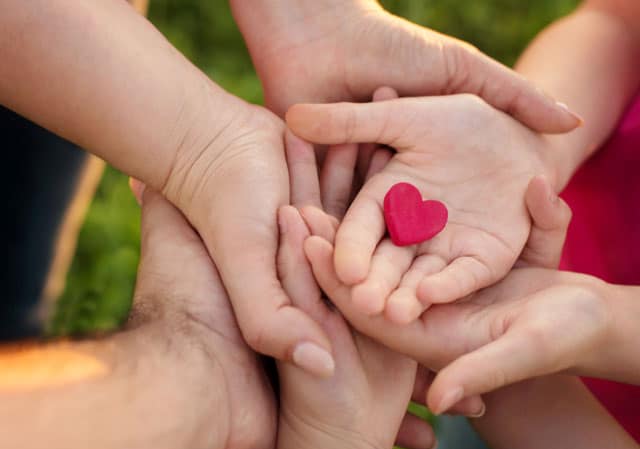Relapse.
In the world of recovery, no word strikes more fear in those who are clean and sober than the word relapse. No matter how strong our recovery game is and our efforts to stay on the straight and narrow, the cravings and urges to use drugs and alcohol always seem to lurk around the corner. While we may not want to think about it, relapse is actually common in recovery. It is estimated that 90 percent of those in recovery will experience a relapse at least once within the first four years.
In the unfortunate event of a relapse, you need to be able to avoid being stuck in guilt and shame and strengthen your relapse prevention plan. The following relapse prevention tips will help you stay the course in your long and winding recovery journey
What You Need to Do After a Relapse
Step Up Your 12-Step Meetings

Slip vs Relapse
One of the most important relapse prevention measures you can take after a slip is to recommit to a regular 12-Step meeting schedule. Whether is it Alcoholics Anonymous, Narcotics Anonymous or other similar sober support groups, you will find common ground with people who have experienced similar situations and can provide you the necessary support and encouragement needed to get back on the right track. You will find that a significant percentage of those sitting around the tables have also relapsed and were able to find recovery.
Hang With the Winners

One of the most common sayings in the recovery community is hang with the winners. This is important in the case of a relapse because you may feel stupid or unworthy of respect. If you allow those feelings to take up most of the space in your brain, you will attract people who will reinforce and confirm those feelings. Surrounding oneself with positive people–whether it is a sponsor through a twelve-step program, family or trusted friends—can provide a solid foundation for the recovering person who has experienced a relapse to pick themselves back up and get back on track.
Live in the Now and Take It One Day at a Time

Another common saying heard in and around the tables of sober support groups like AA and NA is one day at a time. Granted, it has been driven into the ground–but it rings true. If we have relapsed, you cannot be bogged down in what if’s and what has already passed–what’s done is done and you must find a way to move forward. A huge part of a solid recovery is to place importance on the here and now, and keeping your focus on today is key. If one day at a time is too hard, try to think about keeping sober one hour at a time or even one minute at a time. Whatever it takes to keep you clean and sober…
Find New Hobbies

Another key relapse prevention measure is to adopt healthy new activities and hobbies that don’t involve those things associated with drug and/or alcohol use. Finding new hobbies–or reigniting your passion for the hobbies and activities that you loved before your addiction–can help impart new and healthier mindsets and attitudes. Some examples include adopting a regular exercise program, participating in sports, cooking, or even taking up a musical instrument. Volunteering your time to a worthwhile cause or charitable agency can be another example of finding more proactive and productive ways to occupy one’s time.
Learn to Say Yes

When we relapse, we tend to become isolated and feel gun shy about being socially active. While refocusing on your recovery is essential after a slip, a huge part of one’s relapse prevention program is in fact being social and “being in circulation”–albeit in a more careful and controlled fashion. If a friend or family member invites you for coffee or to go to a movie accept the invitation. It helps you get out of your head and allows you to become comfortable with day-to-day living.
Pay It Forward

A simple way to avoid relapse is to simply be of service to someone who is struggling with substance abuse. There is common ground that is shared in regards to that struggle and not only will that person benefit from the shared experience, it wlll give them (and you) the confidence and motivation to continue on the path to recovery.
Quality Drug Treatment Will Give You the Tools to Minimize Relapse
One of the greatest defenses against relapse is a solid foundation in essential life skills, and when you are looking for drug treatment, life skills training is a must. Guardian Recovery Network features effective life skills training that is proven to work and will help minimize the chance of relapse in your own recovery. Call Guardian Recovery Network today and get the tools you need to stay clean and serene.

Reviewed for accuracy by:
Anna Marie Barrett LCSW, CYT
Anna earned her Masters of Social Work at Barry University in Miami, FL in 2017 and completed her internship in co-occurring disorders. Anna has a Bachelors of Art in Religious Studies from Naropa University and is a certified yoga and meditation instructor. Anna has received specialized training in somatic counseling with an emphasis on body-centered psychotherapy.




















